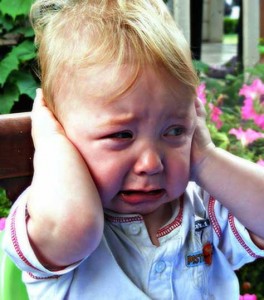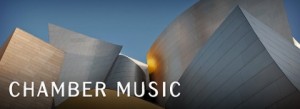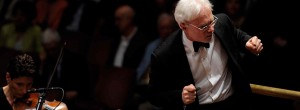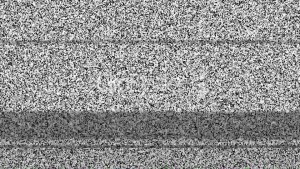NOISE WILL BE NOISE
Two vastly different programs offered by LA Phil this week confirm that “contemporary” music doesn’t sound modern — that is, “new.” For me, both Brad Lubman’s Tangents and John Adams’s Scheherezade.2 fall squarely into “noise,” and I’ve heard it all before. As a reviewer, I have tried to create a critical and theoretical paradigm for this type of contemporary music (including rock and Broadway) that alienates or distracts more than enraptures, but I’ve become too bored and, well, alienated to care. OK, it’s found its place alongside minimalism (a school of which I am growing equally tired) in the history of contemporary music, and seen as a key evolutionary particle therein, but even though I have been inspired by the experimentally interesting and atmospheric noise, rarely am I moved or touched.
But that’s not the point, really. Taste is taste. And there has been plenty of noise to admire and even enjoy. The big issue is that it’s gone on far too long. (It’s the same with plainchant. After a thousand years, you get it already.) I was hoping by now that out of this noise a fresh sound would sprout. That doesn’t look likely to happen soon. Fascinatingly enough, this type of music — whether popular,  underground, avant-garde or classical — is merely reflecting our modern world with its mass media and all things electronically cacophonous and distracting. Maybe one day if we unplug, we will experience a new birth of music.
underground, avant-garde or classical — is merely reflecting our modern world with its mass media and all things electronically cacophonous and distracting. Maybe one day if we unplug, we will experience a new birth of music.
The only thing modern about these new works, both performed flawlessly, is that they are recently composed. Both of them have chaotic, implacable, and lush moments, yet they interrupt their own harmonic motion — so there is just no following these works as they seemingly jump from pounding to solemn for no reason. This may be fun, challenging work for players and fascinating to fellow musicians, but I am simply not sold. Certainly some of Mr. Adams’s previous work is gorgeous, but much of it is head-scratchingly impenetrable. Overall, his work is startlingly inconsistent given the number of commissions he is offered.
Both of these American composer/conductors offer fascinating orchestrations. Lubman uses two pianos, a marimba and vibraphone for his chamber piece, a world premiere at last Tuesday’s American Chamber program. There was plenty of fascinatin’ rhythm for the the four players, but the sound was so disjointed that I was only amazed by the fact that such aural babble could be notated onto paper. Next to Barber’s famous String Quartet, and Eric Ewazen’s original and inspiring Quintet for English Horn and Strings, Lubman’s piece was even more distancing. Walter Piston’s Three Pieces for Flute (Catherine Ransom Karoly), Clarinet (David Howard), and Bassoon (Shawn Mouser) was my personal favorite as the chirpy Prokofievian passages evoked woodland creatures; perhaps a momma bird feeding her babies.
Conducting his own work, Adams (Creative Chair of the Los Angeles Philharmonic) had nearly the entire orchestra — including a muscular percussion section — at his disposal in a program that opened with Respighi’s popular tone poems saluting Roman landmarks — The Fountains of Rome and The Pines of Rome (Scheherezade.2 saw its world premiere last March, 2015, with the NY Phil).
At least Adams offered a piece, subtitled “Dramatic Symphony for Violin and Orchestra,” that was engrossing on a minute-to-minute basis. (Who can argue when the arpeggio of harps, slapping of basses, or the thumping of bass drums fill Disney Hall?) His very loose story structure in four abundant movements was born out of his aversion to the treatment of women in both the modern and ancient world, the latter represented in One Thousand and One Nights. He paints a picture of a modern-day Scheherazade — represented by the solo part played here by the fierce Leila Josefowicz for whom the piece was composed — a woman who creates, falls in love, faces trial and condemnation and, finally in the fourth movement, escapes with a liberating flight of freedom. Josefowicz’ defiant face, filled with wide-eyed anticipation, and animatronic body posture positively had her spouting dialogue through her instrument. An amazing performance, but she wound up getting lost in the sprawling pomp of beautiful noise. (The entire orchestra got a real workout; the concentration was intense.)
Since there is no actual narrative, it allows the listener to attach whatever story she wants. The first movement utilized the exotic cimbalom (beautifully played center stage by Chester Englander) and shimmying gong (Raynor Carroll), so the mid-eastern flavor was a given. And in the second movement, when staccato bursts from the brass evolved into swaying suspense from the strings, it did indeed evoke a furtive journey through a steaming jungle. Ultimately, it felt like a tone poem with breaks; at 48 minutes with no leitmotifs or discernible melody it overstayed its welcome.
It felt especially long having followed the 17- and 23-minute rapturous renderings of Respighi’s. Adams, youthful and spunky at nearly 70, brought out distinction in the players that was unlike any recording I have ever heard. Joanne Pearce Martin, jumping from the piano to the celesta to the organ, was enthralling to watch as she mastered each instrument. Burt Hara (clarinet), Ariana Ghez (oboe), Ms. Ransom Karoly (flute), and Whitney Crockett (bassoon) offered outstanding solos. And when brass players (led by standout principal James Wilt on trumpet) stood in front of the organ for the climax of The Pines of Rome, it was indeed as Adams called it “shock and awe.” But you certainly can’t call it NOISE.
John Adams photo courtesy of LA Phil
Los Angeles Philharmonic
Walt Disney Concert Hall, 111 S Grand Ave.
American Chamber Music played April 12, 2016
Josefowicz Plays Adams ends on Saturday April 16, 2016
for tickets, call 323.850.2000 or visit LA Phil




